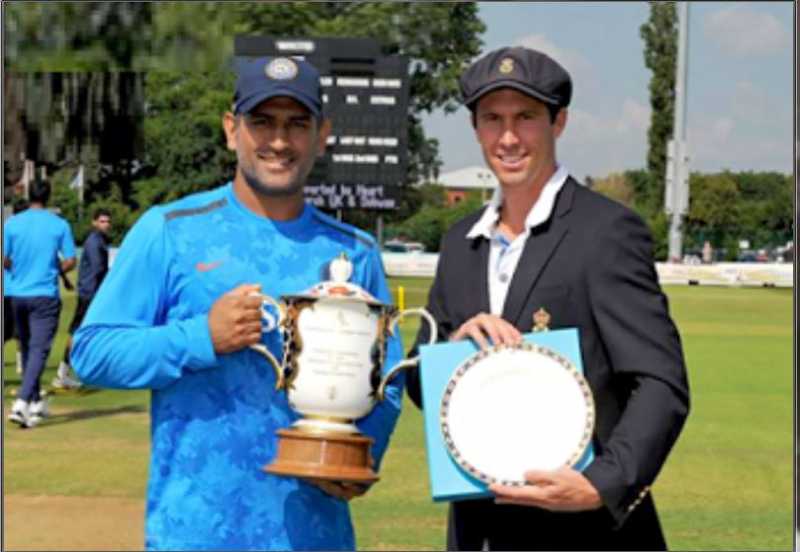Veturi Srivatsa in his columns Just Sportsays Nobody can complain about unfamiliar conditions any more

Every time the Indian cricket team goes on a tour of England, the wailing about blustery conditions, green tops, on which only English bowlers seemed to get wickets for the asking, used to be a routine. Some used to add unpalatable food, too, to round off the misery.
To an extent, all these excuses come in handy only when India toured England in the first half of the summer when the weather is cruel with traces of residual winter accompanied by rain. In the last three decades, things have turned around and today no country can complain about the unfamiliar conditions.
As professional cricketers, you have to accept everything and be prepared. There was a time when Indian cricketers used to turn out as professionals in English club cricket and sell stories to the gullible media back home about their wonderful showing to remind selectors about their form.
Those were the days, the leagues around England, Ireland and Scotland doled out decent money to players playing weekend cricket. There were cases of players from the league being drafted into touring India team on some pretext or other, the most famous being that of Vinoo Mankad, who on being requisitioned from the Lancashire League, scored 72 and 184 and also took five for 196 in 73 overs at Lord’s in 1952, making people wonder how he could be omitted from the original squad in the first place.
In 1986, Kapil Dev called up his pal Madan Lal from the League when Chetan Sharma was ruled out for the second Test, even though Manoj Prabahakr was in the squad cooling his heels. This may have something to do with the frosty relationship between the two all-rounders years later.
When people talk of India’s resurgence in the new millennium, they are either unacquainted with cricket history or carried away by media manipulation. Even the oft mentioned line that India started winning Tests overseas in under Saurav Ganguly misses out the fact that Tiger Pataudi led India to win a Test in New Zealand in horrendous climatic conditions and it was he who imbibed in his teammates that the skin or status has nothing to do with cricket.
Then came Wadekar’s twin successes of winning a series overseas – in the West Indies and England in 1971 – and then Sunil Gavaskar, who showed the batsmen that runs could be got against any attack on any kind of pitches and in any conditions, won a Test in Australia in 1981 to tie the series after Karsan Ghavri and Shivlal Yadav hung in to save the second Test. When Kapil won a series in England in 1986, they said the hosts were weakened by the absence of Ian Botham.
It is not to suggest that what happened in the beginning of this century is of little consequence or demean the achievements of the great teams post 2000. It is only to remind that the seeds of transformation were sown much earlier. The one big difference is that India have beaten Australia, South Africa, England, New Zealand and West Indies in their own backyards and in the case of the last three countries named they even won the series, too.
In such an inspiring backdrop, one cannot think of an Indian team worrying about weather and pitches, unless the players believe in the recent history and are pulled down by imaginary fears. Certainly, this side is not carrying any 2011 baggage. There are only three players — Gautam Gambhir, who was vice-captain then, Ishant Sharma and reserve wicketkeeper Wriddhiman Saha — who are the only relics remaining from that team.
When a team has so many brash youngsters anything can happen. They can adopt a devil-may-care approach or can get rattled. But with a captain like Mahendra Singh Dhoni around, they have a leader who would go to any lengths to back the worthy.
By all accounts and going by recent performances, batting should not be a cause for worry. And there is no gain saying that the bowlers found it difficult to cope with the conditions overseas. If anything, the young fast bowlers can go all out with a little understanding of the bowling surface and guidance from the support staff.
To get 20 wickets on any surface, except on those the bowlers are familiar with, it is always hard work and the team has to be prepared for breakdowns. The attack lacks the experience of someone like Zaheer Khan to lead the attack and that makes an unpredictable Ishant Sharma leader.
It is also not going to be easy to pick the seamers when you have six of them plus Stuart Binny who is in the squad as an all-rounder. Bhuvaneshwar Kumar and Mohammad Shami should get in and Dhoni may be tempted to pick Stuart Binny as the third seamer, failing which it should be Varun Aaaron.
There is no problem with spin as both Ravichandran Ashwin and Ravindra Jadeja are all-rounders in their own right, but it might be difficult to play both if they play three medium-pacers.
Gautam might open with his Delhi mate Shikhar Dhawan followed by Cheteshwar Pujara, Virat Kohli, Rohit Sharma and Ajinkya Rahane as six batsmen. At least for the first Test, starting Wednesday, Dhoni may not like to depend on bits and pieces players. Remember, bowlers, particularly the specialists, will win matches.